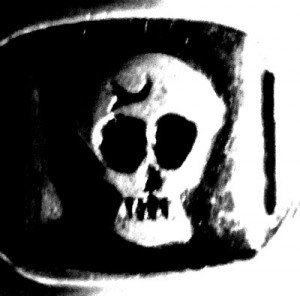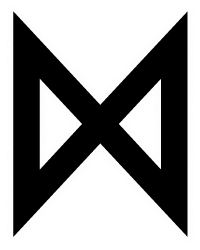Recently I was lucky enough to attend a Konkokyo Shinto ceremony. Shinto is sort of the Japanese equivalent of Heathenry: a folk religion (note the small f, people) with lashings of animism, ancestor worship, and polytheism. It was a really beautiful experience and I’m grateful for it.
I learned a few things about tradition and spirituality that day, and I thought I’d share some of what I learned.
Firstly, the ceremonial elements themselves. The priestesses (what a luxury, a mainstream world religion that has priestesses!) wore exquisite traditional costumes and everyone was dressed quite formally. The altar was bedecked with mountains of food offerings to Kami (spirit/god/anima mundi). The ceremony included extensive chanting and although it was challenging to keep up, my Sufi chanting experience helped, and I really appreciated the extent of “audience participation.”
Everything ran smoothly, the priestesses were confident and appreciated the sense in which performing ritual is just that – a performance that needs to be treated as such if it is to have power.
All this stood in contrast to many of the Heathen rituals I have attended or heard about. For example people turning up in the most informal costume (I have been guilty of this too) where adherents of any other religion would show their respect by dressing at least a little formally (some Heathens are into historical dress, of course, which is fine by me even if I don’t do it personally).
More generally there is both a lack of formality and reverence in much of the Heathen ritual I’ve experienced…and simultaneously a lack of play and humour as well! Heathens seem a bit stuck in the “dispassionate church attendance” mentality, whereas the Konkokyo folks were not at all awkward in their spiritual practice.
And audience participation! What a wonderful thing it is. Not just something generic thing like “ok folks, repeat after me,” but some pretty intense group chanting and individual involvement in making offerings. It gives a lot more investment in the ritual when shared, group activity of this kind is involved.
Second thing I learned: folk religions in the real world (because really, Heathenry often lives in a world of total make believe) don’t need to obsess about ethnic inclusion and exclusion. I was made welcome at this gathering, which is specifically held annually as an opportunity for the general public to attend. It is clear that these guys have a strong and healthy tradition which they are living. They know who they are and what they are doing. So they really aren’t concerned about having foreigners come. In fact they are so quietly self-assured that they invite us in!
What struck me about this in contrast is the relatively immature Heathen attitude to these issues. Heathens carry on so much about who is or isn’t “allowed” to be Heathen on the basis of ethnicity (who appointed anyone to be the arbiter of such questions anyway?), and sometimes this seems more important than the actual practice of Heathenism itself. I think if Heathens had a little more depth in their own connection to tradition, ancestry, and spirituality then they’d no longer be so touchy about the identity politics gig.
If Konkokyo Shinto is like a capable, self-aware adult, Heathenry often seems like a teenager who acts tough to hide their insecurities. I really enjoyed being around a mature folk tradition, but it did highlight to me the shallowness of much of contemporary Heathenry, I hate to say.
To go deep requires much work: both theoretical and practical. It involves learning about history and archaeology and the small details of premodern consciousness. To me it means looking into everyday living, imbuing it with a reverential or animistic attitude. It requires a lot of personal introspection, sorting through and discarding the on-lay of one’s previous faith(s) or values where there is an inconsistency.
I suspect that many Heathens are very hesitant to undertake this work, but especially the personal, psychological aspect of the process. This is unfortunate. I’d like to hope that it changes. I know I need to do a lot more work on this myself, though I console myself with the thought that at least I can recognise and admit it!
The Shinto folk I met, of course, don’t have to do a lot of this sort of work because theirs is a living tradition, whereas ours is a kind of pseudo-historical shibboleth (sorry folks, but that is the hard truth of the matter, no matter how thorough one’s reconstructionist tendencies).
The most important message I took from the day, though, was a point made while watching a couple of short anime films about Konkokyo Shinto – yes I am serious, and I have to say both films were awesome!
The point made related to spiritual practice. Namely that what matters is not whom one prays to, but rather the spirit in which one prays. Honest reverence and sincere supplication are what make spiritual tradition potent. If one holds back or has mixed motives then it doesn’t matter who one worships – that worship will be empty.
It often appears that Heathens lack a genuinely unguarded reverence in their spiritual practice. For all the hard and brittle talk about ancestors and Aesir, there seems little in the way of open, liminal, vulnerable interaction with the divine. Without which, all the trappings and forms are completely hollow.
So I received a good reminder that spiritual forms – myth, story, tradition, specific practices, whatever – are doors and we’re supposed to step through into personal spiritual experience. We aren’t supposed to board these doors and turn them into empty idols. I felt that the Konkokyo folks opened up a place into which a very powerful, beautiful presence of Kami came. Its pretty amazing for a formal spiritual tradition to express these insights and I’d like to experience more of that in the Heathen world.
Perhaps the immediately preceding comments are a little obscure, so allow me to give an example of how the spiritual forms are doors into experience. A few years back at a Christmas lunch (I was the only Heathen present among Christians, agnostics, and atheists) it was somehow decided that we should offer toasts.
There were two toasts that changed the atmosphere. They made everyone fall silent, no, made the world fall silent, as though it were holding its breath, watching with palpable fascination, like we were on the threshold of the universe being born (I’ve also felt this atmosphere working as a counsellor when a client has really entered deeply into insight and begun to make big healing or transformative steps).
The first toast that invoked this sacred atmosphere, this temenos, was a recitation of the Lords Prayer in Arabic by a Lebanese Christian gentleman. In the beautiful cadences of Arabic, this prayer, which I usually find grating and shallow, resonated with power and grace. His performance touched all of us.
The second toast was my own. I started by saying that any gathering of warmth such as this is joyous. And then I recited:
Joy is had by the one who knows
Few troubles, pains and sorrows
And by him who has
Power and blessedness
And a good enough house
The shining stillness of the moment made the wine sweet and many an enigmatic smile appeared on the lips of those gathered. We all sat for a little while, unable to speak but not needing to, either. That moment I feel we stepped through the door of a rune poem into what Heidegger perhaps would have called aletheia – the moment of truth, the primal truth, when all Being is gathered into its sacred, secret perfection.
The experience taught me that both Christian and Heathen forms can be doors into something greater: what makes the difference is our attitude and intention.
The Konkokyo Shinto folks seem to be getting close to this kind of power every time they hold spiritual observance. They made me feel both humble and inspired, which is a pretty awesome combination. We Heathens have a lot to learn, and, I hope, a lot to be excited about.





 I
I 